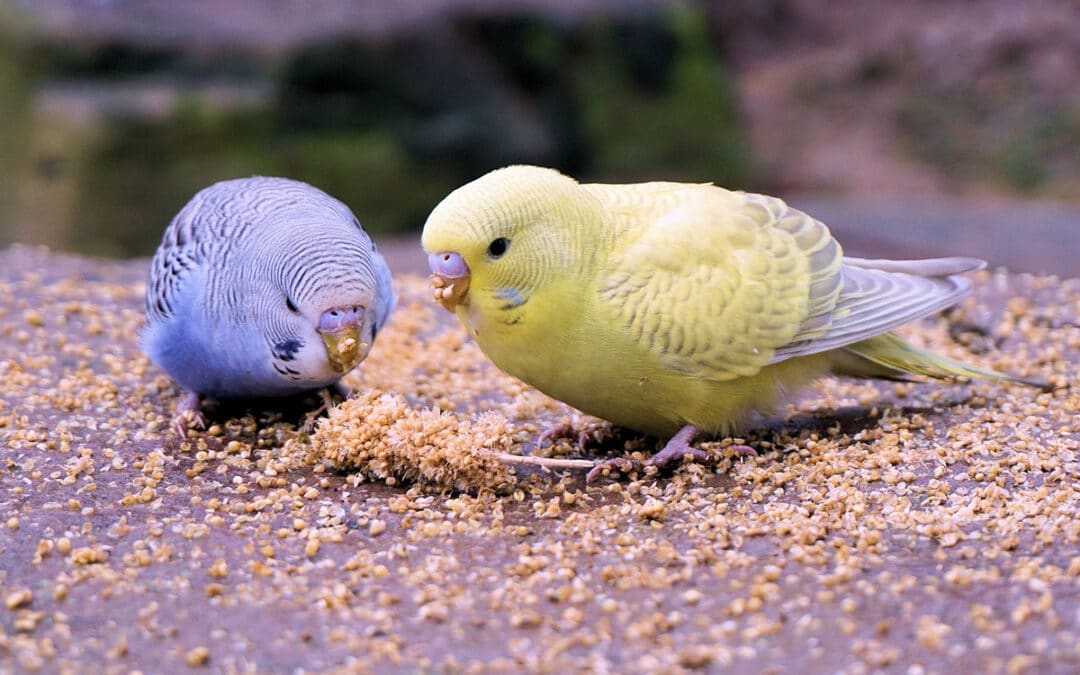Budgies, also known as parakeets, are a popular pet bird species known for their vibrant colors and playful personalities. Proper nutrition is essential for the overall health and well-being of these birds.
While a balanced diet with a variety of fruits, vegetables, and seed mix is important, it’s also important to be aware of foods that are not safe for them. In this article, we will discuss the top fruits and vegetables that are beneficial for budgies, as well as the foods that should be avoided.
Top Fruits for Budgies
Fruits are a great occasional treat for budgies, but it’s important to keep in mind that they are high in sugar and should not be the main component of their diet. The following is a list of the top fruits that are good for budgies, along with a brief explanation of why they are beneficial for these birds:
- Apples: Apples are a good source of vitamins A and C, as well as dietary fiber.
- Bananas: Bananas are a good source of potassium, vitamin B6, and vitamin C.
- Berries (such as blueberries, raspberries, and strawberries): Berries are a good source of antioxidants, which can help boost the immune system.
- Grapes: Grapes are a good source of vitamins K and C, as well as antioxidants.
- Kiwi: Kiwi is a good source of vitamin C and potassium.
- Melons (such as cantaloupe and honeydew): Melons are a good source of hydration and vitamins A and C.
- Oranges: Oranges are a good source of vitamin C, as well as dietary fiber.
- Papaya: Papaya is a good source of vitamin C and beta-carotene.
- Pears: Pears are a good source of dietary fiber and vitamin C.
- Pineapple: Pineapple is a good source of vitamin C and manganese.
Top Vegetables for Budgies
Vegetables are an important part of a balanced diet for budgies, they provide essential vitamins and minerals. The following is a list of the top vegetables that are good for budgies, along with a brief explanation of why they are beneficial for these birds:
- Carrots: Carrots are a good source of vitamins A and K, as well as beta-carotene.
- Bell peppers (red, yellow, green): Bell peppers are a good source of vitamins A, C, and E, as well as antioxidants.
- Broccoli: Broccoli is a good source of vitamins K and C, as well as dietary fiber.
- Cabbage: Cabbage is a good source of vitamins K and C, as well as antioxidants.
- Cucumber: Cucumber is a good source of hydration and vitamin K.
- Kale: Kale is a good source of vitamins K, A, and C, as well as antioxidants.
- Peas: Peas are a good source of vitamins A and C, as well as protein.
- Spinach: Spinach is a good source of vitamins A, K, and C, as well as iron and calcium.
- Squash (such as zucchini and yellow squash): Squash is a good source of vitamins A and C, as well as dietary fiber.
- Sweet potato: Sweet potatoes are a good source of vitamins A and C, as well as beta-carotene.
Foods to Avoid for Budgies
It’s important to be aware of the foods that are not safe for budgies. The following is a list of foods that should be avoided, along with an explanation of why they are not suitable:
- Avocado: Avocado contains persin, which can cause respiratory and heart problems in birds.
- Chocolate: Chocolate contains theobromine which can be toxic to birds.
- Alcohol: Alcohol can cause liver and brain damage in birds and should be avoided.
- Coffee and caffeine: Caffeine can be toxic to birds and can cause nervousness, muscle tremors, and heart palpitations.
- Dairy products: Budgies are unable to digest lactose, the sugar found in milk and other dairy products, which can cause digestive issues.
- Fatty foods: Foods high in fat can cause obesity and fatty liver disease in birds.
- Fried foods: Fried foods are high in fat and can cause health problems.
- Meat and fish: Birds are not able to digest meat or fish properly and they can cause health problems if fed regularly.
- Onions, garlic, and chives: These foods contain compounds that can damage red blood cells and cause anemia in birds.
- Salt: Salt should be limited in a bird’s diet as it can lead to dehydration, electrolyte imbalances, and high blood pressure.
It’s important to note that birds have different nutritional requirements than mammals, and not all human foods are safe for them. Therefore it’s important to stick to a balanced diet specifically formulated for birds. Any new food should be introduced gradually and in small amounts to monitor any negative reactions. It’s always recommended to consult with an avian veterinarian before making any drastic changes in your bird’s diet.
Conclusion
Proper nutrition is essential for the overall health and well-being of budgies. A balanced diet with a variety of fruits, vegetables, and seed mix is important, but it’s also important to be aware of foods that are not safe for them. By providing your budgie with the right foods, you can ensure that they live a long, healthy life. If you have any concerns about your budgie’s diet, it’s always best to consult with an avian veterinarian for guidance.

